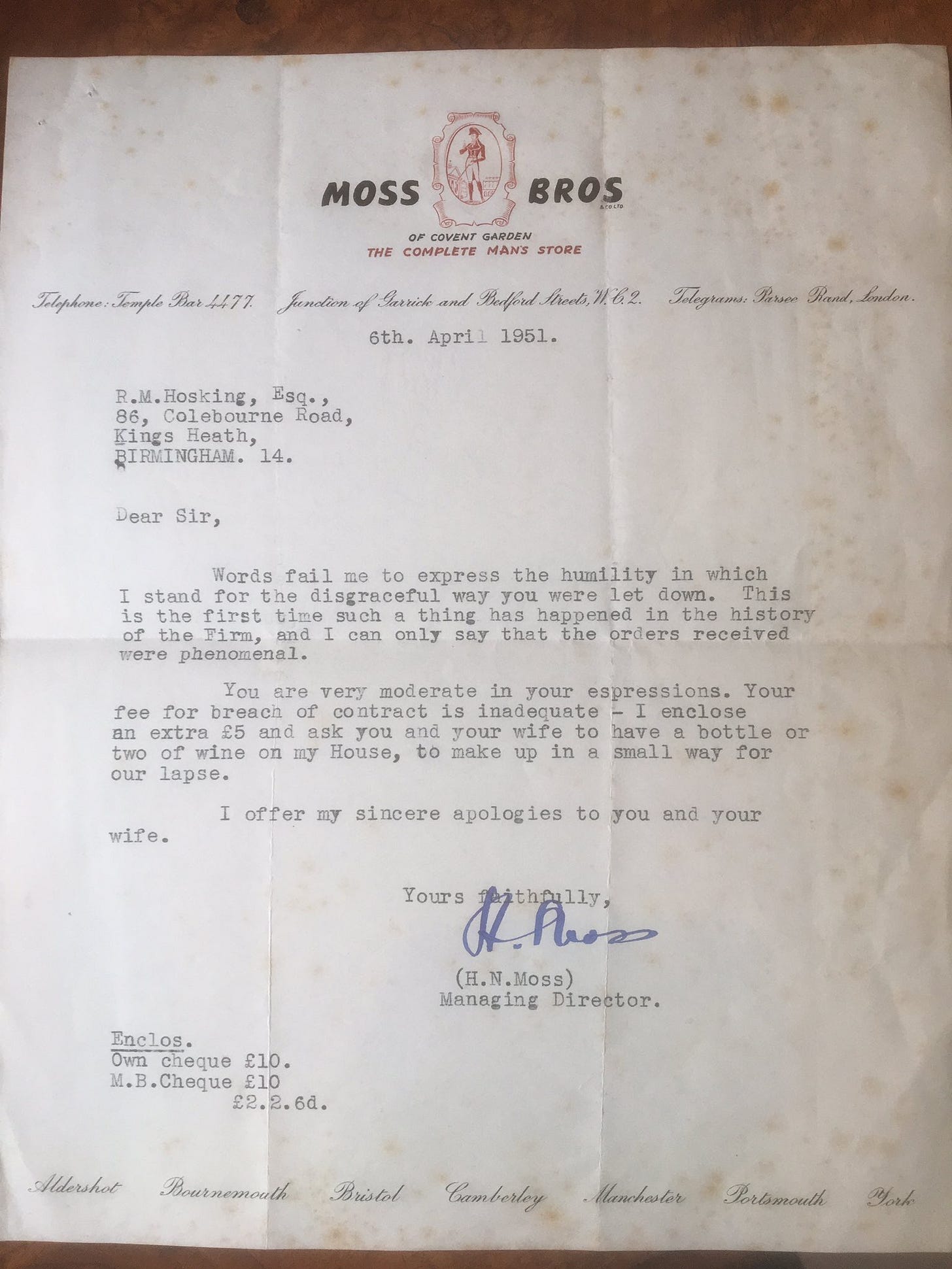Those of you that have read my book (and if you haven’t, I’d love it if you did!) will now know about the greatest customer experience I’ve ever experienced. It was with Swiss Rail, and taught me the three things organisations need to do when a customer has a problem:
Own it
Explain it
Resolve it
It won’t surprise you to know I’m a regular correspondent with complaint teams (we all have a folder on our laptops with our favourite complaint letters in, don’t we?) so I thought I’d share some stories of the past few weeks to show what good looks like - and what really it really doesn’t.
A few weeks ago, I headed to York for a belated celebration of my 40th birthday (those who have seen me recently may think the celebration had been delayed for 15 years).
Beforehand, everything was suspiciously easy. LNER did a great job group booking our tickets. The hotel helped sort us six rooms for eleven people at a good price. The football team we were going to watch even started winning matches.
Things were going so well that, as we walked up the stairs to the hotel, we were laughing that this trip was so much better organised than my stag do. ‘Let’s not say that until we’ve checked in!’ I said, jokingly.
Except, it turns out, it was less of a joke and more of a premonition.
‘I’m sorry sir, the hotel has no water, and we may have to close tonight. I’ll call you later and let you know’
Ah.
Around 6pm, we got a call to say, good news! They’d identified the problem, and the part was on its way. From London. And would arrive around 4am in the morning. But… the hotel would still need to close tonight. We could go to another of their hotels four miles away (which the manager said was a bad option given the taxis we’d need), or we could find somewhere else to stay and get a refund.
We took the final option, and when I got home the next day, I emailed the company to say that the other hotel had cost £100 more – that’s less than £10 per person - due to it being late notice, and could they refund me the difference?
It took me around 10 minutes on the website to find out how to get in touch, eventually having to settle for a ‘give us feedback!’ option. Several days later I got a response. And it wasn’t what I was expecting:
We had several emails back and forward, and no attempts or offers to speak on the phone. Eventually I was offered a £30 gift voucher. But, of course, you rarely get a hotel room for £30, so that would simply mean spending more money with them.
I was delighted to hear the feedback is valuable and will help them improve, though.
Compare and contrast that response with the one I got from EE.
I’d upgraded my contract and essentially asked for the same again, but with 5G. The agent was brilliant, super-friendly, and with great use of screen-share technology to sign documents. However, working in Jersey a week later, I realised I was now paying for roaming that had previously been free.
It took around 10 seconds on the website to find the option to complain, they phoned me the next day, and then sent an email confirming what they were going to do:
Easy to contact, a thorough explanation, and a fair resolution. Albeit I did feel a bit guilty about this one, as the agent was so brilliant, but now I worry he’ll be in trouble…
As I was writing this piece, another example was shared with me by James Hirst, regarding a faulty item of clothing from Passenger.
The response makes for great reading:
Easy to contact, a proper apology, a quick resolution. More than that though, they’ve also shown genuine care about being a sustainable business. Amazon is often held up as a great example of problem-solving for their quick ‘we’ll send you another one’ response, but I don’t recall them ever suggesting what you do with the faulty item you’ve received, or offering an easy way to return it.
When you’re running a business, things go wrong. Sometimes they’re avoidable, and sometimes they’re not, but in either case, what matters is how you deal with it. Customers can forgive the biggest of errors if you own it, explain it, and resolve it. It builds trust, certainty, a confidence that if something goes wrong in the future, the organisation will be there to pick up the pieces.
Petty squabbling back and forward, with multiple emails instead of one good phone call, simply makes the situation worse – as well as being far more expensive for the organisation.
And at the very least, offer a genuine, heartfelt apology. As this letter from Moss Bros in 1961 reminds us:
Thanks for reading this article, I really hope you enjoyed it. You can subscribe to my monthly newsletter below, and find me in tweet form @johnjsills, in picture form on Instagram @CX_Stories, or in work mode at The Foundation






